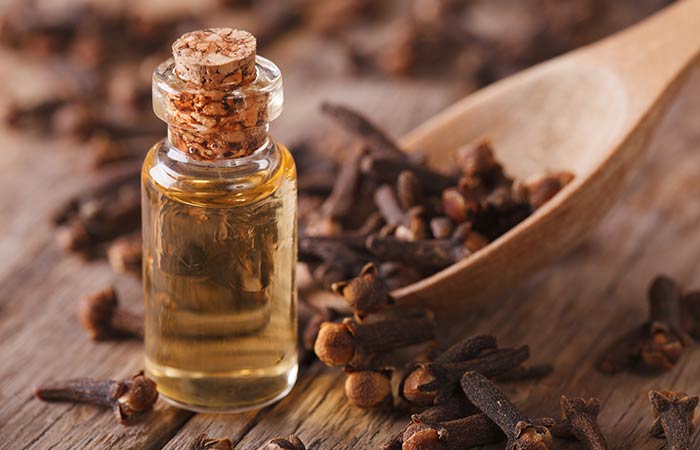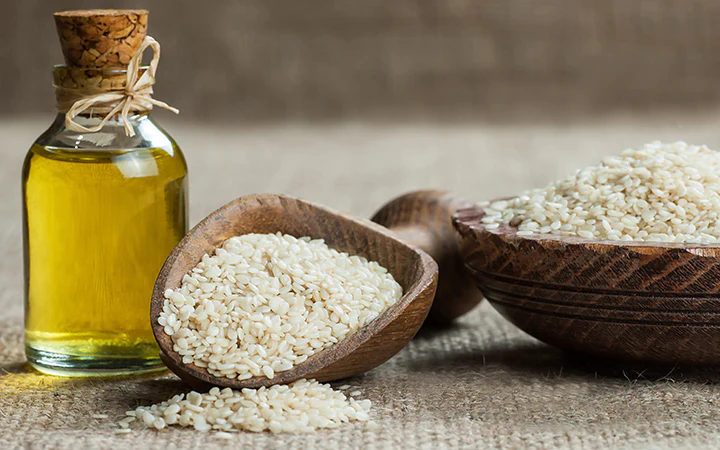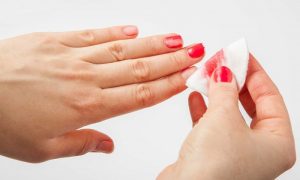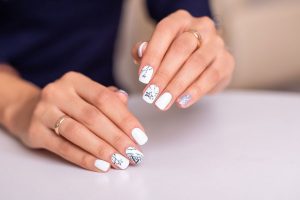
Clove Oil for Acne
How to Use Clove Oil for Acne
Acne is a common skin condition that affects millions of people worldwide. It can be frustrating and embarrassing, leading many individuals to search for effective remedies. One such natural remedy gaining popularity is clove oil. This article explores how to use clove oil to treat acne effectively.
Understanding Acne
Acne occurs when hair follicles become clogged with oil and dead skin cells. This leads to the formation of pimples, blackheads, whiteheads, or cysts. Factors such as hormonal changes, excess oil production, bacteria, and inflammation contribute to acne development.
Benefits of Clove Oil for Acne
Clove oil possesses several properties that make it beneficial for acne treatment:
- Antibacterial: Clove oil contains eugenol, a compound known for its antimicrobial properties. It can help kill the bacteria responsible for causing acne.
- Anti-inflammatory: The anti-inflammatory properties of clove oil can reduce redness, swelling, and inflammation associated with acne breakouts.
- Antioxidant: The presence of antioxidants in clove oil helps protect the skin from damage caused by free radicals, promoting healthier skin.
How to Use Clove Oil for Acne
Topical Application
To use clove oil topically for acne treatment, follow these steps:
- Cleanse your face with a gentle cleanser and pat dry.
- Dilute clove oil with a carrier oil such as jojoba oil or coconut oil. The recommended ratio is 3-5 drops of clove oil per tablespoon of carrier oil.
- Perform a patch test on a small area of your skin to check for any adverse reactions.
- Using a cotton ball or clean fingers, apply the diluted clove oil mixture directly to the affected areas.
- Gently massage the oil into the skin using circular motions.
- Leave it on for 15-20 minutes or overnight, depending on your preference.
- Rinse off with warm water and pat dry.
DIY Clove Oil Face Mask
Another way to incorporate clove oil into your acne treatment routine is by creating a DIY face mask. Here’s how:
- In a small bowl, combine 1-2 tablespoons of bentonite clay and a few drops of clove oil.
- Add enough water or apple cider vinegar to form a smooth paste.
- Apply the mask to your face, avoiding the eye area.
- Leave it on for 10-15 minutes or until it dries.
- Rinse off with warm water and gently pat dry.
Precautions and Tips
- Always perform a patch test before using clove oil on your face to avoid any allergic reactions or skin irritation.
- Do not use undiluted clove oil directly on your skin, as it can be too strong and may cause adverse effects.
- If you experience any redness, burning, or discomfort after using clove oil, discontinue use and consult a dermatologist.
- It’s important to note that clove oil may not work for everyone, and individual results may vary.
Is Clove Oil Effective Against Acne?
Clove oil has gained popularity as a potential remedy for acne due to its antibacterial, anti-inflammatory, and antioxidant properties. While individual results may vary, many people have reported positive outcomes when using clove oil for acne treatment. The key components of clove oil, such as eugenol, contribute to its effectiveness in combating acne-causing bacteria and reducing inflammation.
To determine if clove oil is effective for your specific skin condition, it’s essential to perform a patch test before using it on your face. Dilute a small amount of clove oil with a carrier oil, such as jojoba oil or coconut oil, and apply it to a small area of your skin. Monitor the area for any adverse reactions, such as redness, itching, or irritation. If no negative reactions occur, you can proceed with using clove oil for acne treatment.
How to Use Clove Oil for Acne
When using clove oil for acne, it’s important to dilute it with a carrier oil to prevent skin irritation. Here’s a simple step-by-step guide on how to use clove oil for acne:
- Start by cleansing your face with a gentle cleanser and patting it dry.
- Dilute clove oil with a carrier oil at a ratio of 3-5 drops of clove oil per tablespoon of carrier oil. This will help minimize the potential for skin sensitivity.
- Perform a patch test by applying a small amount of the diluted clove oil mixture to a small area of your skin. Wait for at least 24 hours to check for any adverse reactions.
- If no negative reactions occur, you can proceed with applying the diluted clove oil mixture to the affected areas of your skin. You can use a cotton ball or clean fingers to gently massage the oil into the skin.
- Leave the clove oil mixture on for 15-20 minutes or overnight, depending on your preference.
- Rinse off the clove oil with warm water and gently pat your skin dry.
Remember, consistency is key when using natural remedies like clove oil for acne. It may take time to see noticeable improvements, so be patient and continue with regular application as part of your skincare routine.
Tips and Precautions
Here are some important tips and precautions to keep in mind when using clove oil for acne:
- Always perform a patch test before applying clove oil to your face. This helps identify any potential allergies or skin sensitivities.
- Never use undiluted clove oil directly on your skin, as it can be too strong and may cause skin irritation or burns. Always dilute it with a carrier oil.
- If you experience any redness, itching, or discomfort after applying clove oil, discontinue use and consult a dermatologist.
- Avoid contact with your eyes when using clove oil. If accidental contact occurs, rinse thoroughly with water.
- Keep clove oil out of reach of children and pets. It should be stored in a cool, dry place away from direct sunlight.
- It’s always recommended to consult a dermatologist or healthcare professional before incorporating clove oil or any new skincare product into your routine, especially if you have sensitive skin or existing skin conditions.
Incorporating clove oil into your skincare routine may offer potential benefits for acne treatment. However, it’s important to listen to your skin and make adjustments accordingly. If you have persistent or severe acne, it’s advisable to seek professional advice from a dermatologist.
Other Natural Remedies for Acne
While clove oil can be effective in treating acne, it’s always beneficial to explore other natural remedies. Some popular options include tea tree oil, aloe vera gel, witch hazel, and green tea. Remember to patch test these remedies before incorporating them into your skincare routine.
Conclusion
In conclusion, clove oil offers promising benefits for treating acne due to its antibacterial, anti-inflammatory, and antioxidant properties. When used correctly and in moderation, it can help alleviate acne symptoms and promote clearer, healthier skin. However, it’s essential to exercise caution, perform patch tests, and consult a dermatologist if any adverse reactions occur.
FAQs
Can You Apply Clove Oil Directly to Skin?
No, it is not recommended to apply undiluted clove oil directly to the skin. Clove oil is highly concentrated and can be too strong for direct application, which may cause skin irritation, redness, or burning sensation. It is important to dilute clove oil with a carrier oil, such as jojoba oil or coconut oil, before applying it to the skin.
How Long Does It Take for Clove Oil to Work on Acne?
The effectiveness of clove oil in treating acne can vary from person to person. It may take time to see noticeable improvements in acne symptoms. Consistent and regular application of clove oil can help reduce inflammation, fight acne-causing bacteria, and promote clearer skin. However, individual results may vary, and it’s important to be patient and give it sufficient time to work, typically several weeks or even longer.
Does Clove Water Clear Acne?
Clove water, which is made by infusing cloves in water, is believed to have antibacterial and anti-inflammatory properties that may help in managing acne. However, there is limited scientific evidence supporting the use of clove water specifically for acne treatment. It is important to note that individual responses may vary, and it may not work for everyone. It’s always best to consult with a dermatologist for personalized advice on managing acne.
How Do You Make Clove Oil for Acne Scars?
Clove oil may help with reducing the appearance of acne scars due to its potential antioxidant and anti-inflammatory properties. To make a DIY clove oil mixture for acne scars, you can follow these steps:
- Dilute clove oil by adding a few drops to a carrier oil such as coconut oil or jojoba oil. The recommended ratio is around 3-5 drops of clove oil per tablespoon of carrier oil.
- Mix the oils thoroughly to ensure proper dilution.
- Apply the diluted clove oil mixture to the acne scars using clean fingers or a cotton ball.
- Gently massage the mixture into the skin in circular motions.
- Leave it on for at least 15-20 minutes or overnight, depending on your preference.
- Rinse off with warm water and gently pat dry.
Remember to perform a patch test before using the mixture on your face and discontinue use if any adverse reactions occur. Consistency is key when addressing acne scars, and it may take time to see noticeable improvements.
Can We Apply Clove on Pimples?
Yes, you can apply clove oil on individual pimples, but it is important to dilute it with carrier oil before application. Diluting clove oil helps minimize the risk of skin irritation and ensures safe usage. Apply a small amount of the diluted clove oil mixture directly to the pimple using clean fingers or a cotton swab. Leave it on for a short period, around 15 minutes, and rinse off with water. It is advisable to consult with a dermatologist before using any new treatment on your skin, especially if you have sensitive skin or existing skin conditions.
Can I Apply Clove Oil on My Face?
Yes, you can apply clove oil on your face, but it should be properly diluted with a carrier oil before use. Diluting clove oil helps prevent skin irritation and potential adverse reactions. Apply a small amount of the diluted clove oil mixture to your face, focusing on the affected areas or acne-prone areas. Gently massage the oil into the skin using circular motions. Leave it on for a short period, around 15-20 minutes, and then rinse off with warm water. If you experience any redness, itching, or discomfort, discontinue use andconsult a dermatologist for further guidance.
Please note that individual responses to clove oil may vary, and it’s important to perform a patch test and exercise caution when using it on your face. If you have sensitive skin or any concerns, it’s always best to consult with a dermatologist before incorporating any new skincare product into your routine.
Is clove oil suitable for all skin types?
Clove oil is generally safe for most skin types. However, it’s important to dilute it with a carrier oil and perform a patch test before applying it to your face. If you have sensitive or allergic skin, it’s best to consult a dermatologist before using clove oil.
Can I use clove oil directly on acne spots without dilution?
It’s not recommended to use undiluted clove oil directly on acne spots, as it can be too strong and may cause skin irritation. Always dilute clove oil with a carrier oil before applying it to your skin.
How often should I use clove oil for acne?
The frequency of clove oil application may vary from person to person. Start by using it once a day and monitor how your skin responds. If you experience any adverse effects, reduce the frequency or discontinue use.
Can clove oil completely cure acne?
While clove oil can be beneficial for acne treatment, it may not completely cure acne on its own. It’s important to maintain a consistent skincare routine, eat a balanced diet, and adopt a healthy lifestyle for optimal results.
Where can I purchase clove oil?
Clove oil is available in many health food stores, pharmacies, and online retailers. Ensure that you purchase pure, high-quality clove oil from a reputable source.








